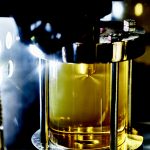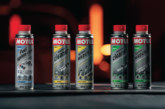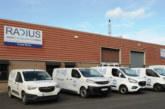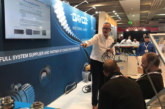As a factor, being able to support your customers with information and expertise about the services they should be providing has the potential to boost revenue. Hartridge, in collaboration with Delphi Automotive, explains why the YDT-35 common rail injector testing solution can be a bonus for both factor and garage alike.
Garages that have not invested in tools and training may lack the confidence and expertise to service today’s increasingly sophisticated diesel common rail fuel injectors. This becomes a problem when garages have to turn jobs away, or refer the business in its entirety back to the dealer network. Either way, they will almost certainly miss out on important revenue
opportunities.
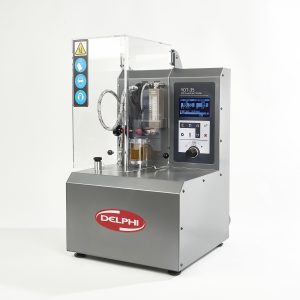 With Delphi’s YDT-35, garages now have the ability to troubleshoot common rail injectors and only send for repair of the faulty injectors. As a result, businesses should be able to retain more work in house, helping to save time, as well as providing another profitable service opportunity for both themselves and factors.
With Delphi’s YDT-35, garages now have the ability to troubleshoot common rail injectors and only send for repair of the faulty injectors. As a result, businesses should be able to retain more work in house, helping to save time, as well as providing another profitable service opportunity for both themselves and factors.
What does it do?
Delphi’s common rail injector test solution, the YDT-35, has been developed in collaboration with Hartridge for garages and general diesel workshops. It combines an electrical injector test with visual spray pattern checks to quickly identify failed individual injectors in the garage.
Complementing the existing Delphi onvehicle test solutions for common rail injectors, the YDT-35 is easy to use, affordable and able to withstand the tough garage environment. The company claims that, in less than five minutes and seven easy steps, the desktop machine indicates if an injector can achieve basic mechanical and electrical operation.
This cannot be achieved by using a diagnostic tool alone. Without physically seeing how much fuel an injector is delivering, or assessing the uniformity of the spray pattern, then only the electrical actuation can be determined. This results in more customer uncertainty and additional costs to explore the issue further.
Benefits for the garage and factor
By offering this capability, factors are providing garages with another string in their service bow – the ability to pinpoint individual injectors that fail. With this, garages will be able to provide a more definitive answer to customers in terms of next steps, timescales and costs to fix the problem. This will save both the garage and car driver significant time and money, resulting in a satisfied customer and the prospect of repeat business in the future.
It will also help to create demand for the factor’s own injector business, and potentially a stronger tie between factor and garage. So, as well as the revenue from the initial sale of the equipment, factors are likely to see a continuing return through additional injector sales. This is a win-win for all parties.
The sales pitch
As with most pieces of capital investment, the ‘sell’ is likely to be based on a conversation around two key areas:
What the workshop can do that their competition cannot:
- Offer a meaningful initial diagnosis of diesel injectors that the competition cannot.
- Save time for customers and help them back on the road faster.
- Offer a higher level of service overall.
Opportunities to get a return on the investment:
- Offer the service to local garages at a price per injector.
- Charge for the additional diagnostic time separately.
It is also strongly recommended to have a YDT-35 on display in reception to generate enquiries, especially if a factor has even a moderate footfall in store. The machine is aesthetically pleasing and is a great conversation starter. What’s more, by being able to talk through the process step-by-step, staff will be able to show off their technical expertise and understanding of the product, while at the same time demonstrating to the technician just how easy the tool is to use. This is another great way to sell the tool.

